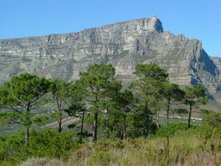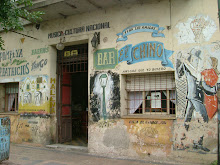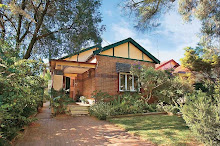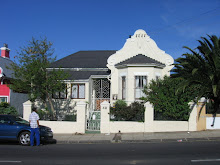Today I was privileged to be at the launch of the paper-turned-book of Dr Michael Fullilove, the director of the global issues programme at the Lowy Institute for International Policy here in Sydney. As a new emmigrant his book "World Wide Webs: The Diaspora and International Systems" covered issues close to my heart while providing a fresh new take and some excellent mind-food. For those who don't know, the Lowy Institute's has long been known to be a major think-tank of international policy in Australia.
Today's event was particular pertinent to my journey as I start to figure out where I fit and why, and what impact my history has had on my present and future. Small and personal as these debates sometimes are, Dr Fullilove was able to assist in opening my mind to the wider discussion about the impact of emigration and immigration, governments and policy, local and national pride and allegiances.
In his book Dr Fullilove notes that a diaspora is derived from the Greek word "diaspeirein" meaning to sow or scatter. He says it was used to describe Jews living outside of Israel, but has come to be used much more broadly and has now come to be used to describe transnational communities.
It was only recently that I returned from South Africa, at once inspired by the energy and dynamism of individuals, groups and extraordinary projects there and horrified by some of the stories I was hearing. After some 20 years in the non-governmental community, as an activist and advocate there, I came back to Sydney with a dual heart: at once elated and heavy.
My question was how to relate back to this world and offer something of service. Had I deserted by moving in with the love of my life in the comfortable and safe city of Sydney? Was I a deserter to this new land if I wanted to do work and offer support back to South Africa? Where is my allegiance? Who do I owe what to, if anything?
Of course this is all the more poignant at a time of my application for permanent residency in Australia and a time of increased horror stories back home. Following my brother's political cartoons keeps me in touch with South African issues, remaining involved with projects in South Africa makes me believe that I have something to offer, but the niggling question is always "is this enough?"
The lecture this morning at the Lowy Institute shed new light on the topic. It opened this personal debate to the wider political debate. It emphasised the importance of remittances (money sent back by peoples rather than governments, a particular interest of mine). It highlighted the importance of the "thickening and strengthening" of what Dr Fullilove calls the World Wide Web (a description he believes better describes those living away from their original communities - in his days of international studies the Billiard Board analogy was more often used, but he argues that various nations cannot be impenetrable Billiard Balls rolling around unaffected by the countries they brush up against or have contact with). His paper covering the impact of Diasporas on Homelands and Home Countries is at once fascinating and challenging.
You can find it yourself at http://www.lowyinstitute.org/
Monday, 18 February 2008
Friday, 19 October 2007
South Africans visiting Sydney - costs
For a South African visiting Sydney, here is an idea of costs. The rand is between R5,80 and R6 per Aussie dollar.
- coffee $3 (if you're lucky $2,80 but can go up to $4,40 for the shmancy ones)
- train from inner west into city, after 9am, return $4.40
- meal in a food court $6 to $11, without drink usually
- meal in a cafe $12 to $19
- breakfast with all the bits in a cafe about $10 - 12
- ferry tickets - best to buy a pack of ten for inner harbour ferries - $27 for 10
- swim in a public pool - between $4 and $5,50, book of 10 about $37
- $1.80 for the Sydney Morning Herald
- tango milonga $15 - $20
- tango lesson $15 - $20 (combine a group lesson with a milonga to save costs)
- RSL Clubs (no, not Rosemary Shapiro-Liu clubs - these are Retired Servicemen Leagues) offer cheap but often good meals, often in an eat-all-you-like format - about $12 - 15 for lunch and $15 - $18 for dinner (if you join, usually for $2, those meals will cost a few dollars less)
Thursday, 20 July 2006
3 memorable cities, one address
Cape Town, Buenos Aires, Sydney: three cities, one Southern address. Once visited, they never leave you. I was born in Cape Town, and have lived there 40 years. Both Buenos Aires and Sydney now occupy a special place in my life - they say life begins at 40, and for me it did - all over again. I visited Buenos Aires, at 34 degrees South, soon after my 40th birthday to pursue my passion for tango, and then moved to be with my loved one in Sydney, also 34 degrees South. It was in Spain that we met, while I traveled the world at the start of my new life-begins-at-40. Three cities I love, three places that represent home.
These photos offer a glimpse into the three cities: the Majestic Table Mountain, in the Mother City, Cape Town. Devils Peak at sunset from Woodstock, near my Cape Town home, at the dog-walking field. Bar Chino in Buenos Aires, and the tango salon, at Conf Ideal. And finally Sydney, the Opera House and the Harbour Bridge from the air, from a small plane.
Three cities, all 34 degrees South, all wedged in my soul.
Devils Peak, Cape Town (from Woodstock)

Conf Ideal, Buenos Aires

These photos offer a glimpse into the three cities: the Majestic Table Mountain, in the Mother City, Cape Town. Devils Peak at sunset from Woodstock, near my Cape Town home, at the dog-walking field. Bar Chino in Buenos Aires, and the tango salon, at Conf Ideal. And finally Sydney, the Opera House and the Harbour Bridge from the air, from a small plane.
Three cities, all 34 degrees South, all wedged in my soul.
Devils Peak, Cape Town (from Woodstock)

Conf Ideal, Buenos Aires

Labels:
34 degrees South,
Buenos Aires,
Cape Town,
Confiteria,
Devils Peak,
Ideal,
Sydney,
tango
Subscribe to:
Posts (Atom)






